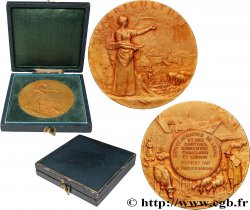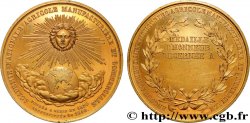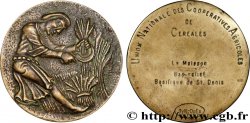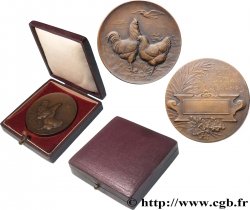fjt_115091 - SOCIÉTÉS D'AGRICULTURE, HORTICULTURE, PÈCHE ET CHASSE Comice agricole d’Orléans n.d.
non disponibile.
Articolo venduto sul nostro negozio (2017)
Prezzo : 25.00 €
Articolo venduto sul nostro negozio (2017)
Prezzo : 25.00 €
Tipo : Comice agricole d’Orléans
Data: (après 1880)
Data: n.d.
Metallo : argento
Diametro : 31 mm
Asse di coniazione : 12 h.
Orlo : lisse
Marchio : corne ARGENT
Commenti sullo stato di conservazione:
Superbe exemplaire
Diritto
Titolatura diritto : OLIVIER - DE SERRES.
Descrittivo diritto : Buste habillé à gauche, au-dessous signature H. DE LONGUEIL.
Rovescio
Titolatura rovescio : COMICE AGRICOLE DE L’ARRONDT D’ORLÉANS.
Descrittivo rovescio : Autour et dans une couronne de diverses cultures, vigne, olivier, blé, avec, sur le feuillage, une tête de bélier, de vache et de cheval ainsi qu'une charrue, au centre en deux lignes : CONSEIL/ D’ADMon..
Commento
Poinçon corne. Olivier de Serres, le “père de l’agronomie française”, est né à Villeneuve-de-Berg dans le Vivarais. Issu d’une famille protestante aisée, il montre très tôt une curiosité intellectuelle proche des humanistes. Il est surtout connu pour avoir introduit en France la culture de la soie mais ses travaux sur l’assolement triennal apportent d’importants changements pour les techniques de culture.
Horn punch. Olivier de Serres, the “father of French agronomy,” was born in Villeneuve-de-Berg in the Vivarais region. Born into a wealthy Protestant family, he showed early on an intellectual curiosity similar to that of the humanists. He is best known for having introduced silk cultivation to France, but his work on three-year crop rotation brought about important changes in cultivation techniques.
Horn punch. Olivier de Serres, the “father of French agronomy,” was born in Villeneuve-de-Berg in the Vivarais region. Born into a wealthy Protestant family, he showed early on an intellectual curiosity similar to that of the humanists. He is best known for having introduced silk cultivation to France, but his work on three-year crop rotation brought about important changes in cultivation techniques.








 Segnalare un errore
Segnalare un errore Stampate la pagina
Stampate la pagina Condividi mia selezione
Condividi mia selezione Fai una domanda
Fai una domanda Consegnare / vendere
Consegnare / vendere
 Descrittivo
Descrittivo















